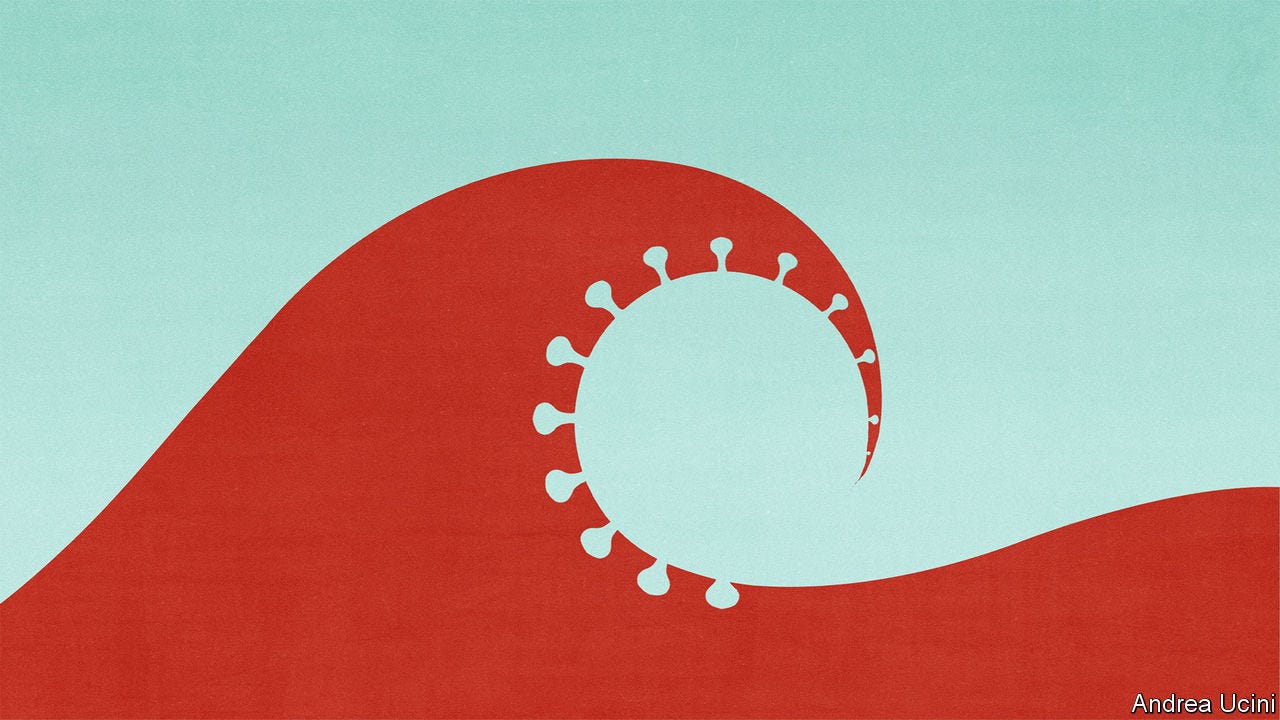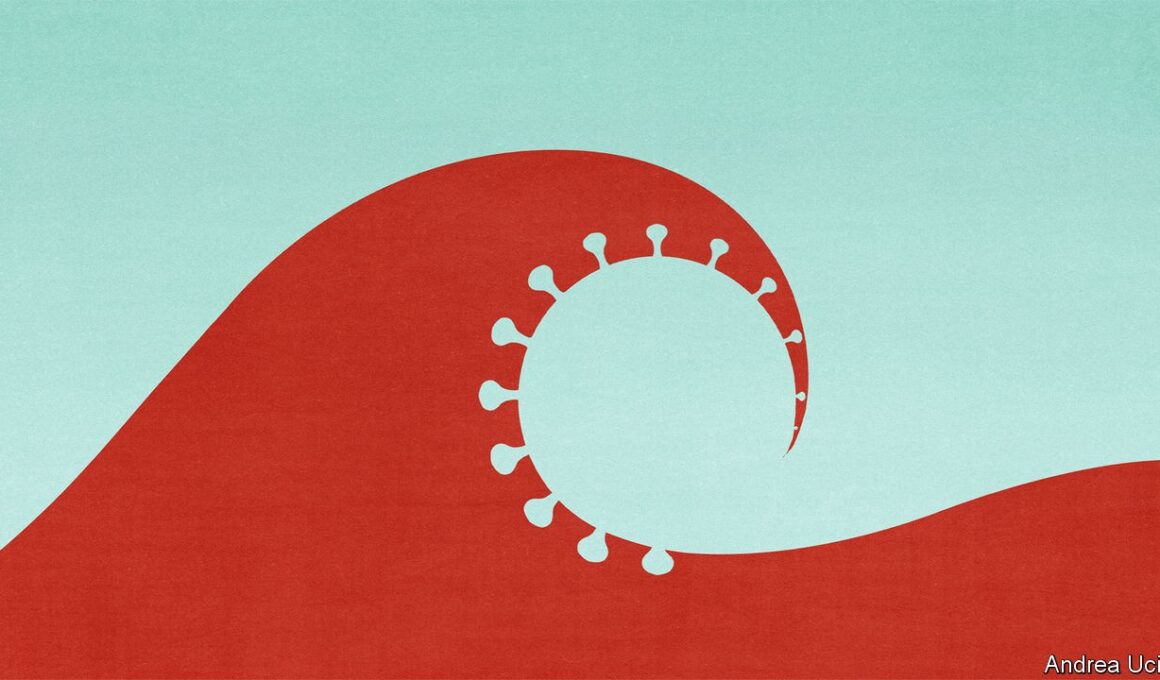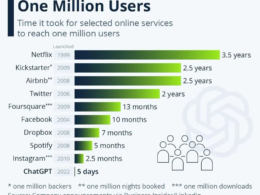the health strategist
institute for continuous health transformation
and digital health
Joaquim Cardoso MSc
Senior Advisor for Health Strategy and Digital Health
January 6, 2023
In one phrase:
China’s reopening after COVID-19 lockdown will impact global economy, with both positive and negative effects.
Executive Summary
- China’s reopening after three years of closed borders due to the COVID-19 pandemic will have significant consequences for the global economy.
- As the virus continues to spread rapidly within China, causing hospitals to be overwhelmed, the country’s economy may contract in the first quarter of 2023.
- However, as the pandemic passes and economic activity rebounds, China’s demand for goods, services, and commodities will increase, leading to a boost in GDP in the first three months of 2024.
- This increase will likely have a positive impact on places that depend on Chinese spending, such as hotels in Phuket and malls in Hong Kong, and on exporters of commodities consumed by China, such as oil and copper.
- However, the recovery may also have negative effects on the global economy, including higher inflation and interest rates in countries that import commodities, and increased competition for businesses in sectors where China is a dominant player.
- According to Goldman Sachs, a bank, a rapid recovery in China could help push the price of Brent crude oil to $100 a barrel, an increase of a quarter compared with today’s prices (though still below the heights reached after Russia invaded Ukraine).
- Rising energy costs will prove another hurdle to taming inflation.
DEEP DIVE

The Economist
Jan 5th 2023
For the better part of three years-1,016 days to be exact-China will have been closed to the world.
Most foreign students left the country at the start of the pandemic. Tourists have stopped visiting. Chinese scientists have stopped attending foreign conferences. Expat executives were barred from returning to their businesses in China. So when the country opens its borders on January 8th, abandoning the last remnants of its “zero-covid” policy, the renewal of commercial, intellectual and cultural contact will have huge consequences, mostly benign.
First, however, there will be horror. Inside China, the virus is raging. Tens of millions of people are catching it every day .
Hospitals are overwhelmed. Although the zero-covid policy saved many lives when it was introduced (at great cost to individual liberties), the government failed to prepare properly for its relaxation by stockpiling drugs, vaccinating more of the elderly and adopting robust protocols to decide which patients to treat where. Our modelling suggests that, if the virus spreads unchecked, some 1.5m Chinese will die in the coming months.
There is not much outsiders can do to help.
For fear of looking weak, the Chinese government spurns even offers of free, effective vaccines from Europe. But the rest of the world can prepare for the economic effects of the Communist Party’s great U-turn. These will not be smooth. China’s economy could contract in the first quarter, especially if local officials reverse course and seal off towns to keep cases down. But eventually economic activity will rebound sharply, along with Chinese demand for goods, services and commodities. The impact will be felt on the beaches of Thailand, across firms such as Apple and Tesla, and at the world’s central banks. China’s reopening will be the biggest economic event of 2023.
As the year progresses and the worst of the covid wave passes, many of the sick will return to work.
Shoppers and travellers will spend more freely. Some economists reckon that GDP in the first three months of 2024 could be a tenth higher than in the troubled first quarter of 2023. Such a sharp rebound in such a huge economy means that China alone could power much of global growth over the period.
The party is banking on it.
It hopes to be judged not on the tragedy its incompetence is compounding, but on the economic recovery to follow. In Xi Jinping’s year-end address, the party chief thanked pandemic workers for bravely sticking to their posts and, while nodding to “tough challenges” ahead, promised that “The light of hope is right in front of us.” He sounded eager to look past the pandemic, emphasising the chances of a swift economic revival in 2023 and offering reasons to be proud of living in a rising China under party rule.
The ending of China’s self-imposed isolation will be good news for places that depended on Chinese spending.
Hotels in Phuket and malls in Hong Kong suffered as Chinese were locked up at home. Now would-be travellers are flocking to travel websites. Bookings on Trip.com rose by 250% on December 27th compared with the previous day. Economists are pencilling in a GDP boost for Hong Kong of as much as 8% over time. Exporters of the commodities that China consumes will also benefit. The country buys a fifth of the world’s oil, over half of its refined copper, nickel and zinc, and more than three-fifths of its iron ore.
Elsewhere, though, China’s recovery will have painful side-effects.
In much of the world it could show up not in higher growth, but in higher inflation or interest rates. Central banks are already raising rates at a frenetic pace to fight inflation. If China’s reopening increases price pressure to an uncomfortable degree, they will have to keep monetary policy tighter for longer. Countries that import commodities, including much of the West, are at the greatest risk of such disruption.
Take the oil market. Rising Chinese demand should more than compensate for faltering consumption in Europe and America, as their economies slow.
According to Goldman Sachs, a bank, a rapid recovery in China could help push the price of Brent crude oil to $100 a barrel, an increase of a quarter compared with today’s prices (though still below the heights reached after Russia invaded Ukraine).
Rising energy costs will prove another hurdle to taming inflation.
According to Goldman Sachs, a bank, a rapid recovery in China could help push the price of Brent crude oil to $100 a barrel, an increase of a quarter compared with today’s prices. Rising energy costs will prove another hurdle to taming inflation.
For Europe, China’s reopening is another reason not to be complacent about gas supplies later in the year.
Zero-covid, by suppressing China’s demand for gas, made it less costly than it otherwise would have been for Europe to fill its storage tanks in 2022. A strong recovery in China will mean more competition for imports of liquefied natural gas. In December the International Energy Agency, a forecaster, warned of a scenario in which winter starts punctually in 2023 and Russia cuts off piped gas to Europe entirely. That could result in shortages amounting to as much as 7% of the continent’s annual consumption, forcing it to introduce rationing.
For China itself, the post-pandemic normal will not be a return to the status quo ante.
After watching the government enforce zero-covid in a draconian fashion and then scrap it without due preparation, many investment houses now see China as a riskier bet. Foreign firms are less confident that their operations will not be disrupted. Many are willing to pay higher costs to manufacture elsewhere. Inbound investment in new factories seems to be slowing, while the number of companies moving business outside China has jumped, by some accounts.

Normal not normal
As Chinese officials struggle to repair the damage, they should remember some history.
China’s previous great reopening, after the stultifying isolation of the Mao years, led to an explosion of prosperity as goods, people, investment and ideas surged across its borders in both directions.
Both China and the world have benefited from such flows, something politicians in Beijing and Washington seldom acknowledge.
With luck, China’s current reopening will ultimately succeed.
But some of the paranoid, xenophobic mood that the party stoked during the pandemic years will surely linger.
Exactly how open the new China will be remains to be seen.
Exactly how open the new China will be remains to be seen.
Originally published at https://www.economist.com on January 5, 2023.












